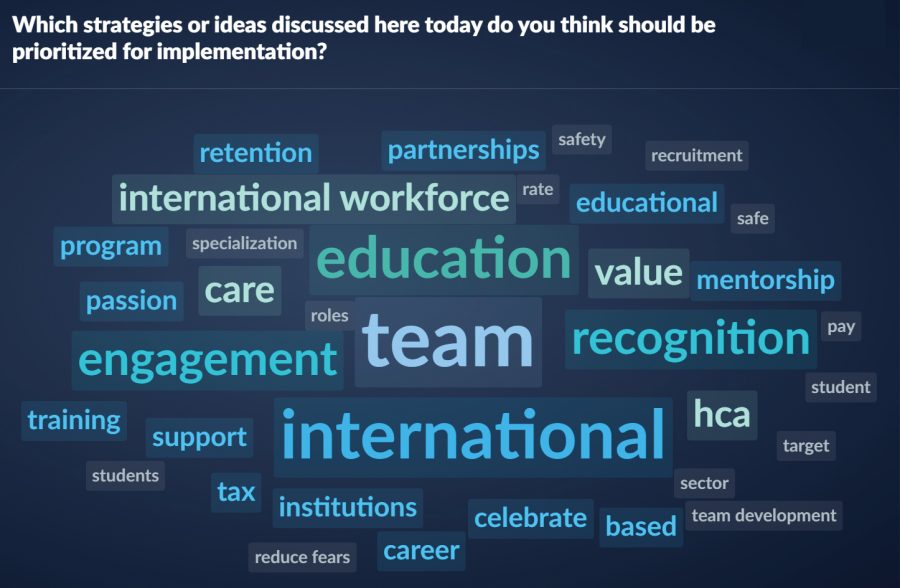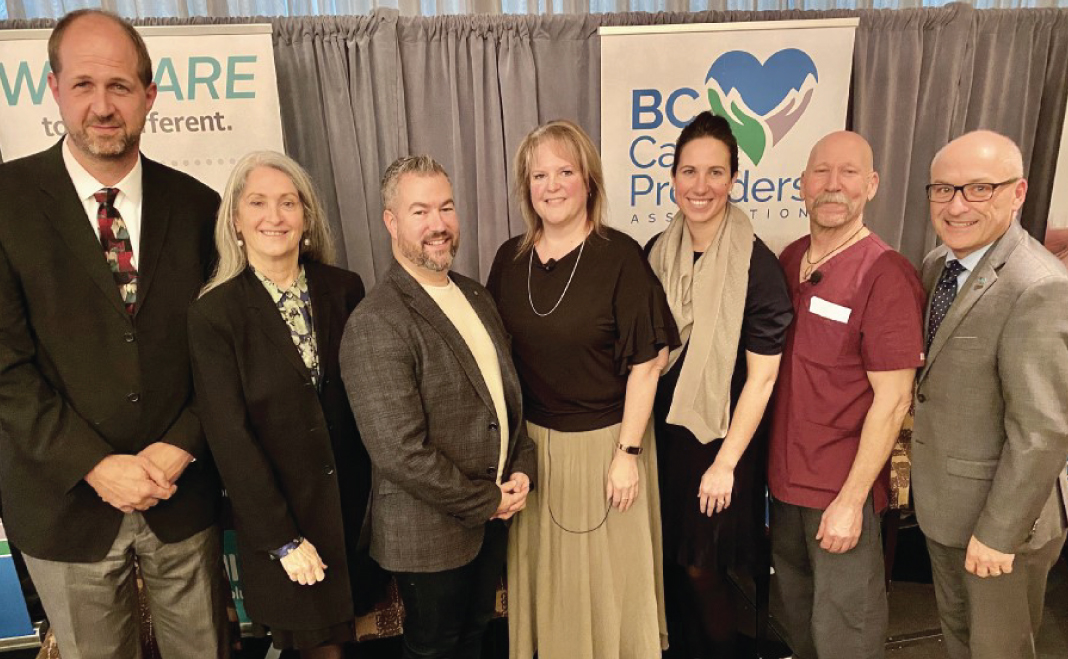BC Care Providers Association’s Care to Chat on January 24th in Vancouver was a sold-out event that brought together care providers, academicians, unions, and government officials to envision a seniors’ care work force of the future.
BCCPA CEO Daniel Fontaine kicked off the event with a set of poll questions for the audience. 43 per cent of respondents said their organization was greatly affected by worker shortages. Only two per cent said they believed there will be the right number and mix of health care professionals and workers to care for our aging population within 10 years.
During the panel discussion, Hendrik Van Ryk, COO of H&H Total Care and moderator, broached several topics such as public perception of the sector, marketing and awareness strategies, new education and training approaches, and immigration policies and labour mobility.
Bryan Gay, a health care assistant at Menno Place, said negative media stories about seniors’ care can deter people from pursuing careers in the sector.
Health Care Aide Bryan Gay from @MennoPlace says we need to let people know how great working in #seniorscare is. #CaretoChat pic.twitter.com/jut731Hyk7
— BC Care Providers (@BCCareProviders) January 24, 2020
Gay, who entered the workforce in his 40s, said older workers are often overlooked in recruitment efforts, but their life experience makes them good candidates for care aide jobs. He also stressed the importance of recruiting more men in the field, which is predominately—approximately 90 per cent—made up of women.
Gay added that with many industries competing to attract workers, the seniors’ care sector should target those who already possess a unique combination of skills and personality traits—such as compassion, empathy, patience, flexibility, and strong work ethic—to excel in these careers.
Executive Director of HEABC Recruitment Solutions Audra Fediurek spoke to the value of marketing strategies, such as “Choose2Care,” a new campaign spearheaded by Health Match BC, to boost public awareness of the health care assistant profession.
Thank you @BCCareProviders for the opportunity to participate in today’s #caretochat panel discussion. I learned so much from the other panelists and loved the opportunity to connect with others in the sector https://t.co/VYbrH3Jpfm
— Audra Fediurek (@fediurek) January 24, 2020
Patricia O’Hagan, Dean of Health and Human Services at Vancouver Island University, proposed several creative strategies to attract new students to health care careers, such as setting up training programs in remote communities; building partnerships between care providers and education institutions that would allow employers to vet, sponsor and hire students; and recruiting alumni to promote training programs.
While the focus on recruitment in seniors’ care has taken centre stage, care providers are also struggling with retention. Kathy Nduwayo, Quality Consultant at Park Place Seniors Living, said her organization came up with a novel idea to make care aides feel more appreciated in the workplace. They flipped their hierarchy pyramid to place care aides at the top and management and https://bccare.ca/wp-content/uploads/2022/08/medcare-img22.jpgistrative staff at the bottom—a strategy that has gone a long way in improving quality of work life and retaining staff.
Great discussion and hot topic, thank you for talking about issues that matter. https://t.co/yNUzvBpubP
— 🍃Courtyard Gardens 🍃 (@CYGardens) January 25, 2020
Gamification is a unique strategy to drive engagement and participation among front-line workers, said Stuart Feldman, Canadian General Manager at PointClickCare. Introducing an adaptive and intuitive platform in the workplace can boost motivation among staff by making learning fun.
Following the panel discussion, Daniel Fontaine asked the audience which recruitment and retention strategies they would prioritize to ensure a robust workforce for the future. The responses generated the word cloud below.

A recording of event is available for purchase. Please contact cathy@bccare.ca for more information. View our Flickr album below for photos of the event.
Registration is open for the March 6th Care to Chat titled “Does it Take a Village? Changing the Face of Dementia Care.”
Thank you to our sponsors whose support makes events like these possible.







